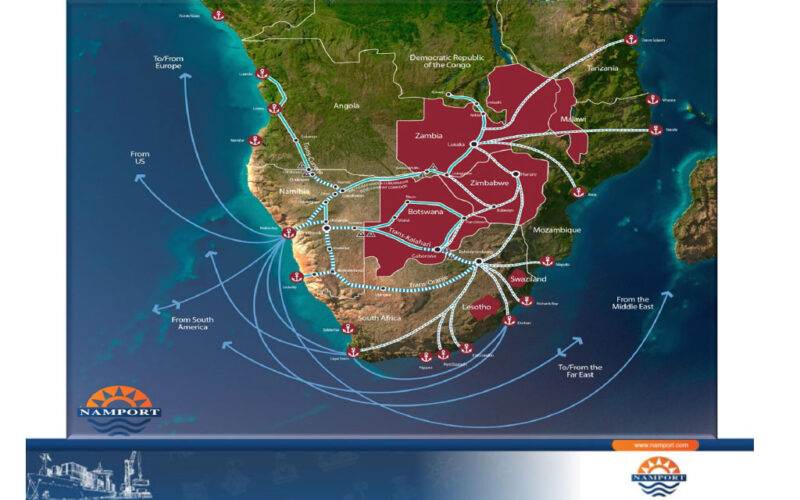Chamwe Kaira
The Namibian Ports Authority, also known as Namport, has confirmed that there are no intentions to construct ports in Oranjemund or Elizabeth Bay. The reason cited is the sufficient and planned capacity available in Namibia’s existing two ports. This announcement came from Namport’s CEO, Andrew Kanime, during the Oil and Gas Conference held in Windhoek.
Kanime stressed that both the Port of Walvis Bay and Port of Luderitz will continue to play roles in serving the oil and gas industry, although their involvement may vary in intensity.
He reassured that Namport has well-defined plans to support the needs of the oil and gas sector in these two ports, with provisions in place for scalability in alignment with the industry’s growth. The decision to not construct new ports in Oranjemund or Elizabeth Bay is due to the already sufficient capacity available within Namibia’s existing port infrastructure.
Namport’s infrastructure development strategies are designed to accommodate industry requirements and are aligned with accelerated timelines for different phases. The organisation intends to collaborate with the private sector to develop the necessary infrastructure through public-private partnership arrangements. Kanime highlighted that private sector participants will be selected through transparent public tender processes, with a strong emphasis on local content requirements and participation, both in ownership and operation.
Kanime explained that considering the existing engineering capabilities in Walvis Bay and the goal of ensuring long-term sustainability beyond the development phase, the Port of Walvis Bay is better positioned to handle the heavy engineering aspects of the development phase. However, he also noted that the Port of Luderitz should contribute as much as possible.
He stressed the importance of collective contributions and collaboration among all stakeholders to realize the vision of becoming a logistics and energy hub, acknowledging that the success of the oil industry hinges on this cooperation.
Regarding long-term plans to accommodate the oil industry’s needs, Kanime revealed that a substantial 200 hectares of prime shoreline land will be reserved at the North Port for establishing a world-class one-stop-shop oil and gas supply base. Phase 1 of this endeavor will entail a 200-meter berth and 30-50 hectares of backup land.
Kanime elaborated that this land is primarily earmarked to facilitate the development of the Orange Basin and other projects within the central and northern areas of Namibia’s Exclusive Economic Zone.
He added that the provision of heavy engineering services will be centered in Walvis Bay due to its existing capacity, which is further bolstered by the established ship and rig repair industry in the region.




